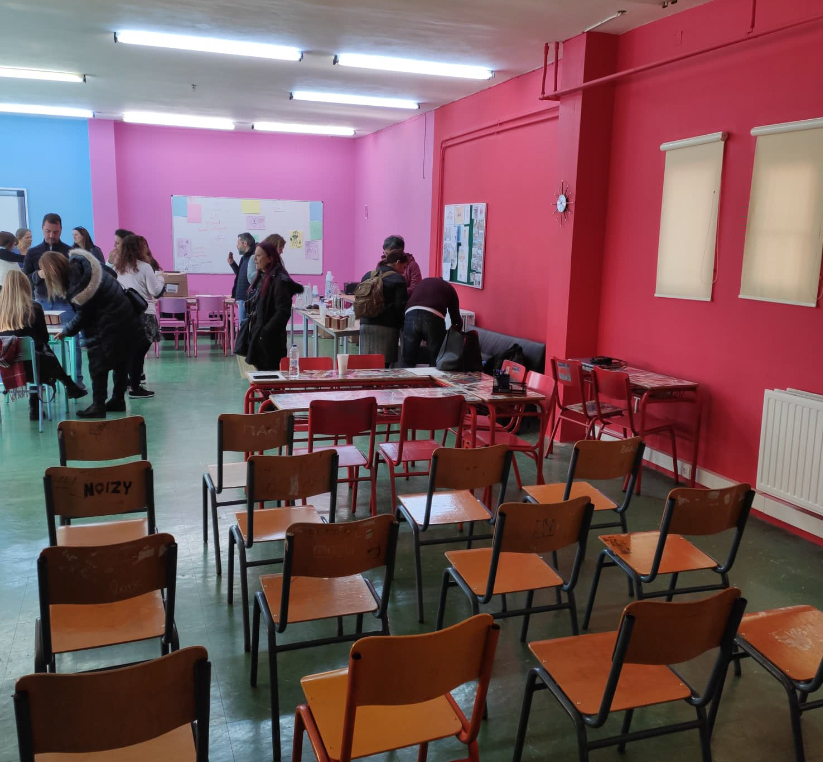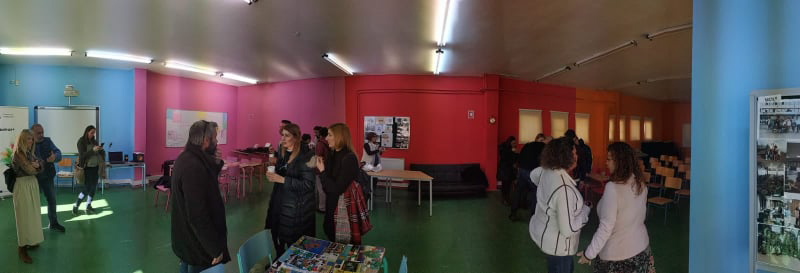PRESS RELEASE
Directorate of Secondary Education of the Dodecanese.
Erasmus plus KA 201 “CompuT” “Computational Thinking at School” Project code: 2019-1-EL01-KA201-062883
Applicant Organisation
Directorate of Secondary Education of the Dodecanese, Public educational authority, Rhodes, Greece
Partners
University of the Aegean, LTEE (Learning Technology and Educational Engineering Laboratory), Rhodes, Greece
Secondary School of Gennadi, Rhodes, Greece
2nd Upper Secondary School of Rhodes, “Kazouleio” Greece
Secondary School of Zipari, Kos, Greece
CEP La Laguna, training centre, Public educational authority, Tenerife, Spain
IES EL SOBRADILLO, Secondary School, Tenerife, Spain
Fyllingsdalen videregående skole, Secondary School, Bergen, Norway
Agrupamento de Escolas de São João da Talha, Secondary School, Lisbon, Portugal
The project “Computational Thinking at School” aims to introduce computational thinking and its implications in pedagogies in the educational field. The high impact of Computer Science in science, economy and society has increased the dialogue about the role of Computational Thinking in education.
The project addresses the application of Computer Science to school subjects through training of teachers. The role of teachers is crucial in understanding of Computational Thinking as this is depicted in learning activities they design.
The project has four aims:
a) an online training course for teachers at partner schools
b) production of learning scenarios related to computational thinking. Evaluation of scenarios and their impact on learners. Selection of best practices
c) digital guide
d) this website
The first project meeting took place in Rhodes from 27/01 to 31/01/2020 under the coordination of the Directorate of Secondary Education of the Dodecanese. More particularly, the meeting was attended by the representatives of 8 education agencies and school units of the participant countries that is Spain, Portugal, Norway and Greece.
On Monday, January 27th all the participants paid a visit to the 2nd General Lyceum (Kazouleio) and the Unified Special Vocational Gymnasium-Lyceum in the city of Rodos where fruitful exchange of teaching ideas with resident teachers
underlined the significance of Erasmus practices. Except for the delicious treats as well as the remarkable hospitality on behalf of both school units, the warm-hearted reception reached a crescento when the guests had the pleasure to try and perform Greek Folklore dances.



2o General Lyceum of Rodos (Kazouleio)
On the 28 and the 29 of January, a series of teacher training lectures, programs and workshops were successfully coordinated by the University of the Aegean in order to emphasize the importance of embedding computational thinking curricula in teacher education and offer recommendations to prepare the next generation of computationally literate instructors.


UNIVERSITY OF THE AEGEAN
On Thursday, January 30th Mr. Konstantinos Taraslias the deputy mayor of culture, tourism development and international affairs of the municipality of Rhodes welcomed the visitors in the Town Hall. Great enthusiasm prevailed when the majority of participants expressed their admiration and keen interest in local cultural beauties.
A following meeting with Mr. Kallistos Diakogeorgiou, Regional Director of Culture and Environment of the South Dodecanese Prefecture gave an insight into the works of local authorities.
The highlight of the day was a tour in the Medieval City of Rhodes where the Archaeological Museum exhibits and the Grand Master Palace beauties caught the participants’ attention.



TOWN HALL
 ARCHAEOLOGICAL MUSEUM
ARCHAEOLOGICAL MUSEUM MEDIEVAL CITY
MEDIEVAL CITY
Friday, January 30th, was full of pleasant surprises and unforgettable experiences for the Erasmus partners. First came one of the most attractive and scenic trip destinations on the island of Rhodes that is the ancient town of Lindos on its antique Acropolis. A walk through the cobbled streets and the white houses of the village was of great interest and pleasure.


LINDOS
Then, Mr. Dimitrios Kavalas, principal of the Gymnasium of Gennadi, had a wonderful reception organized along with the help of his teaching staff. The Erasmus partners caught a glimpse of how a school unit is likely to transform itself after taking part into an Erasmus project.


“Future Classroom Lab”

GYMNASIUM OF GENNADI
Click here to download the Press Release in English. (PDF)
Πατήστε εδώ για να κατεβάσετε το Δελτίο Τύπου στα Ελληνικά. (PDF)
